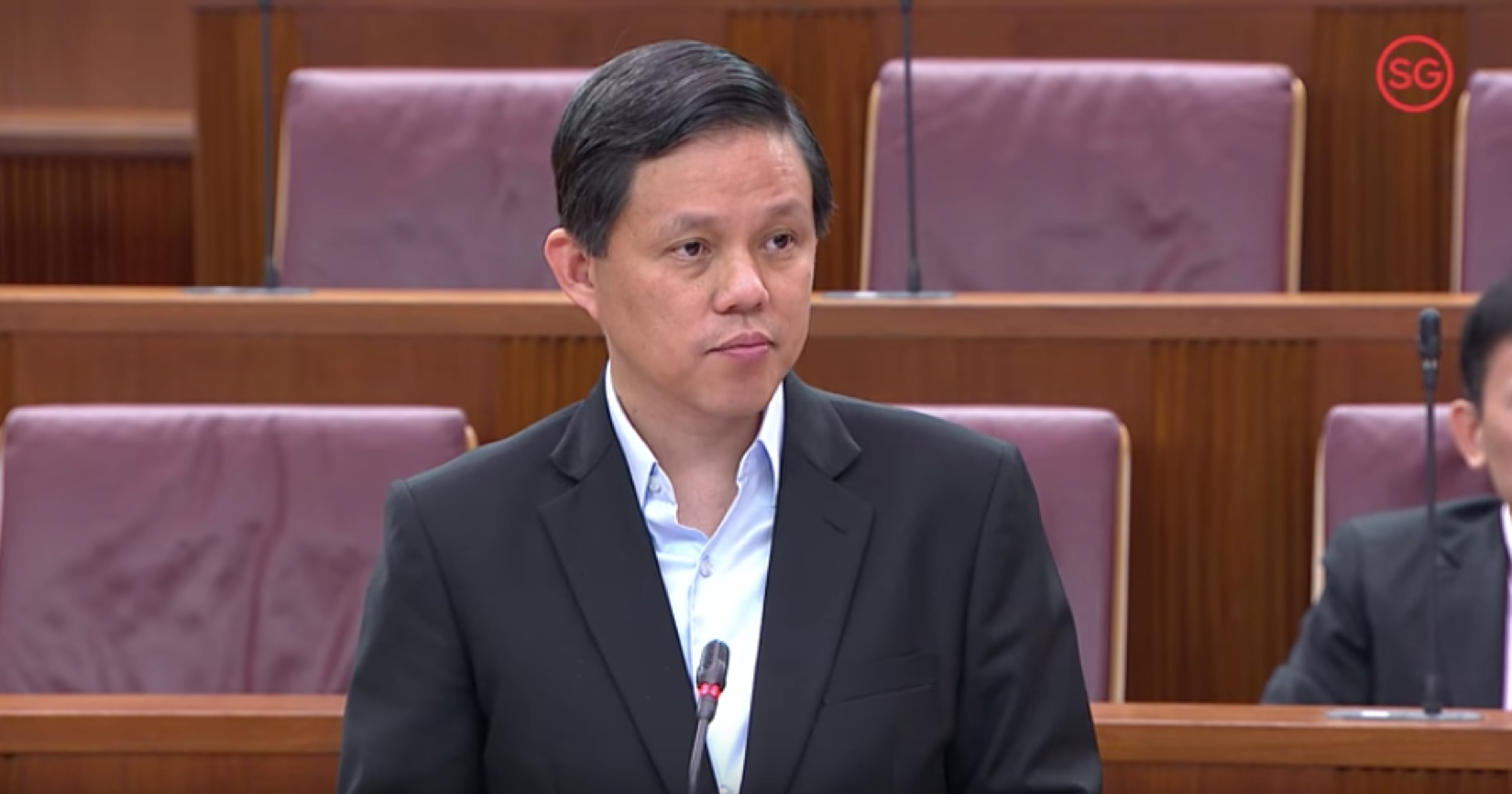Singapore's economy remains resilient, despite a weakened global economic environment.
Minister for Trade and Industry Chan Chun Sing struck an optimistic note in Parliament on July 8, in response to questions about the state of Singapore's economy and the impact of the U.S.-China trade war.
Export-oriented sectors have been affected
Chan noted that the International Monetary Fund had lowered the global GDP growth forecast from 3.5 per cent down to 3.3 per cent.
Additionally, demand in Singapore's key export markets has lowered as a result of the ongoing U.S.-China trade war, Brexit, and political uncertainties dampening business and consumer confidence.
This in turn meant that the performance of Singapore's outward-oriented sectors such as electronics, precision engineering and wholesale trade remained weak.
"Pockets of strength" remain
However, Chan highlighted that other aspects of the economy still remained strong.
The information and communications sector is expected to grow, given strong demand by firms for IT and digital solutions.
Sectors such as education, health, and social services are also similarly expected to remain resilient, while the construction sector has turned around after three years of contraction.
On top of that, unemployment has also remained low at 2.2 per cent, with the strength of the labour market indicated by how employment has continued to increase in the first quarter of the year.
Chan added that MTI had previously projected in May that Singapore's economy would grow between 1.5 to 2.5 per cent for 2019.
As such, the forecast will be reviewed again in August, to take into account the full set of economic data for the second quarter, as well as the latest external conditions.
Forecast expected to be reviewed down with technical recession
This forecast is likely to be reviewed down, with Singapore potentially slipping into a technical recession in the third quarter of 2019.
A technical recession is defined as two straight quarters of quarter-on-quarter contraction.
In May 2019, MTI narrowed the original forecast to 1.5 to 2.5 percent gross domestic product (GDP) growth.
It was 1.5 to 3.5 percent initially.
Another revision so soon suggests a tempering of expectations.
The current projections are suggesting between zero and negative 0.5 percent quarter-on-quarter growth in the three months to September 2019.
Here's how Singapore will overcome
Despite the less-than-positive news, Chan has a three-pronged plan to weather the storm.
First, Singapore will stand out from its competitors by strengthening its unique selling points.
These include:
- A stable political environment and a "competent, united leadership".
- A pro-business environment, including rule of law, a pro-innovation regulatory environment, and a safe harbour for talent and ideas.
- Superior connectivity in supply chains and distribution networks, with sea, air and land links, as well as good connectivity in finance and data.
- A skilled workforce that continually upgrades itself.
- A progressive tripartite partnership involving government, businesses and labour working together.
He also mentioned the recent IMD study that ranked Singapore as the most competitive economy in the world.
Chan said: "We must extend our lead, by continuing to build on these fundamentals and seizing new opportunities."
Transforming Singapore's industries
The second prong of this trident-inspired strategy involves transforming the economy, through the Industry Transformation Maps and the work of the Future Economy Council.
Existing sectors, such as Advanced Manufacturing and Tourism, will be enhanced through infrastructure spending.
Entirely new sectors are also being created, such as "precision medicine", which uses a patient's biological data to offer more personalised treatment, and high-tech agri-food production.
Chan also announced that Enterprise Singapore will launch the Scale-up SG programme to help companies in their international activities.
Strengthening trade links
Chan's final prong involves improving Singapore's links to other economies, whether with the use of technology, or by striking trade deals.
He mentioned digital trade as a key driver of future growth, and spoke of digital economy initiatives with countries like Australia, Chile and New Zealand.
Singapore is also a "co-convenor" of a Joint Statement Initiative on E-commerce at the World Trade Organisation, in an attempt to help shape the rules of digital trade.
On the trade deal front, Singapore is pushing ahead with new deals such as the Regional Comprehensive Economic Partnership (RCEP) and the Pacific Alliance Free Trade Agreement (FTA).
RCEP alone includes a third of global GDP and almost half of the world's population, a massive opportunity for Singapore businesses.
Existing trade deals such as the China-Singapore FTA and the Comprehensive Economic Cooperation Agreement (CECA) with India will be reviewed and upgraded to further benefit Singaporeans.
Chan said:
"While there are clouds looming, we believe we are well-placed to weather the storm.
Our economic fundamentals are sound, we are in a strong fiscal position, and we are making good progress in restructuring our economy."
Related story:
Top image from Gov.sg's YouTube page.
If you like what you read, follow us on Facebook, Instagram, Twitter and Telegram to get the latest updates.
